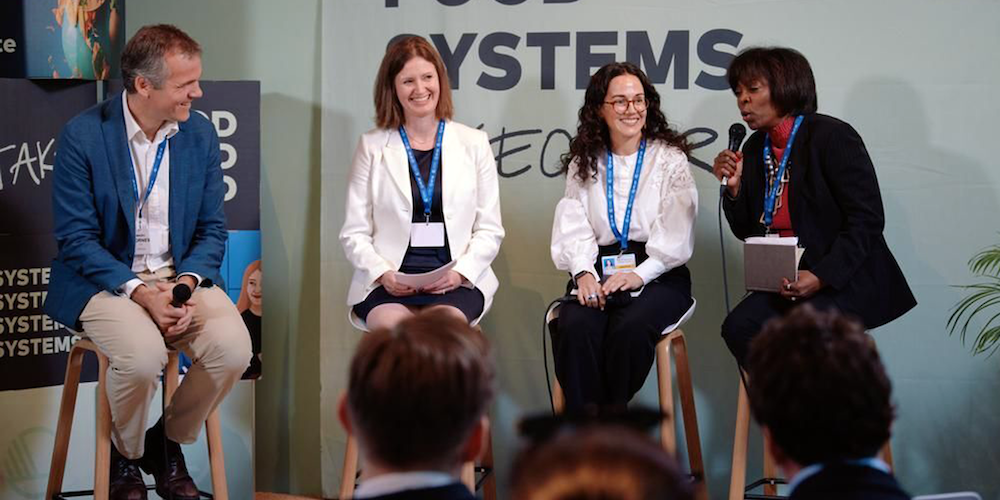Conference of the Parties (COP) is a crucial global platform under the United Nations Framework Convention on Climate Change (UNFCCC). It’s an occasion for nations to come together to combat climate change and its impacts. COP28 in Dubai has been a focal point for the global community, with the Hospitality Industry playing a pivotal role.
Food waste significantly contributes to global greenhouse gas emissions, accounting for 10% of the total, largely due to methane produced when it ends up in landfills. With the world aiming to limit temperature increase to 1.5 degrees, the hospitality sector, influential in food consumption, waste management, and energy usage, finds itself in a crucial position to contribute towards this global climate goal. As all eyes turned to Dubai for COP28, Winnow has played a key role in bringing food waste issues to the forefront of discussions.
Food systems have been front and centre like never before at COP28, and these are our key takeaways:
1. The Emirates Declaration is a significant step for food systems transformation
The signing of the Emirates Declaration for Global Food Systems at COP28 is a landmark moment, signifying a collective commitment to sustainable food systems. This agreement has been endorsed by over 150 countries. It underscores the global recognition of the importance of sustainable practices in food production, distribution, and waste management. It represents a unified step towards reducing the environmental impact of the food sector - aligning with the broader goal of mitigating climate change.
2. The Urgency of Addressing Food Waste in Climate Action
COP28 brought into sharp focus the critical role of the hospitality sector in combating climate change. Winnow's presence at the conference highlighted the need for urgent action against food waste, a significant contributor to greenhouse gas emissions. Winnow and Hilton announced results from their Green Breakfast initiative, which saw a 62% reduction in food waste in a matter of months.
3. Challenges and Disappointments in Climate Negotiations
Reactions to the final negotiated COP28 text has been mixed, with some leaders finding it disappointing and insufficient. Whist for the first time countries embark on a de facto phase out of fossil fuels, the COP is not designed to enforce these at the national level. Developing countries still need hundreds of billions more in finance, to help them make the transition away from coal, oil and gas. Developed countries and oil producers will not be forced to move as fast as climate science urges reports The Guardian.
4. The Role of Technology and Collaboration
Winnow's partnership with Ne'ma in the UAE demonstrates the power of technology and collaboration in reducing food waste. The partnership has shown how a data-driven approach can help tackle the shared problem of food waste. It serves as a powerful example for the wider food and hospitality industry, demonstrating how joint efforts can lead to significant, sustainable change. Their success paves the way for similar collaborations, underscoring the importance of collaboration in addressing food waste challenges globally.
5. The Forward Path: Expansion and New Partnerships
Looking ahead, Winnow's plans to expand initiatives like the Green Ramadan program and the excitement about the Green Breakfast initiative underscore the sector's potential for innovation and growth in sustainability. Winnow's engagement with key decision-makers at COP28 opens avenues for new partnerships, setting the stage for broader implementation of sustainable practices in the hospitality sector globally.
COP28 has brought to the forefront the hospitality sector's ability to effect positive environmental change. Successful initiatives like the Green Breakfast and the Ne'ma collaboration showcase the impact of technology and teamwork in reducing food waste. This is an invitation for the industry to innovate and advance sustainability. The time for action is now, and by uniting our efforts, we can effectively tackle climate change.








Comment on my blog